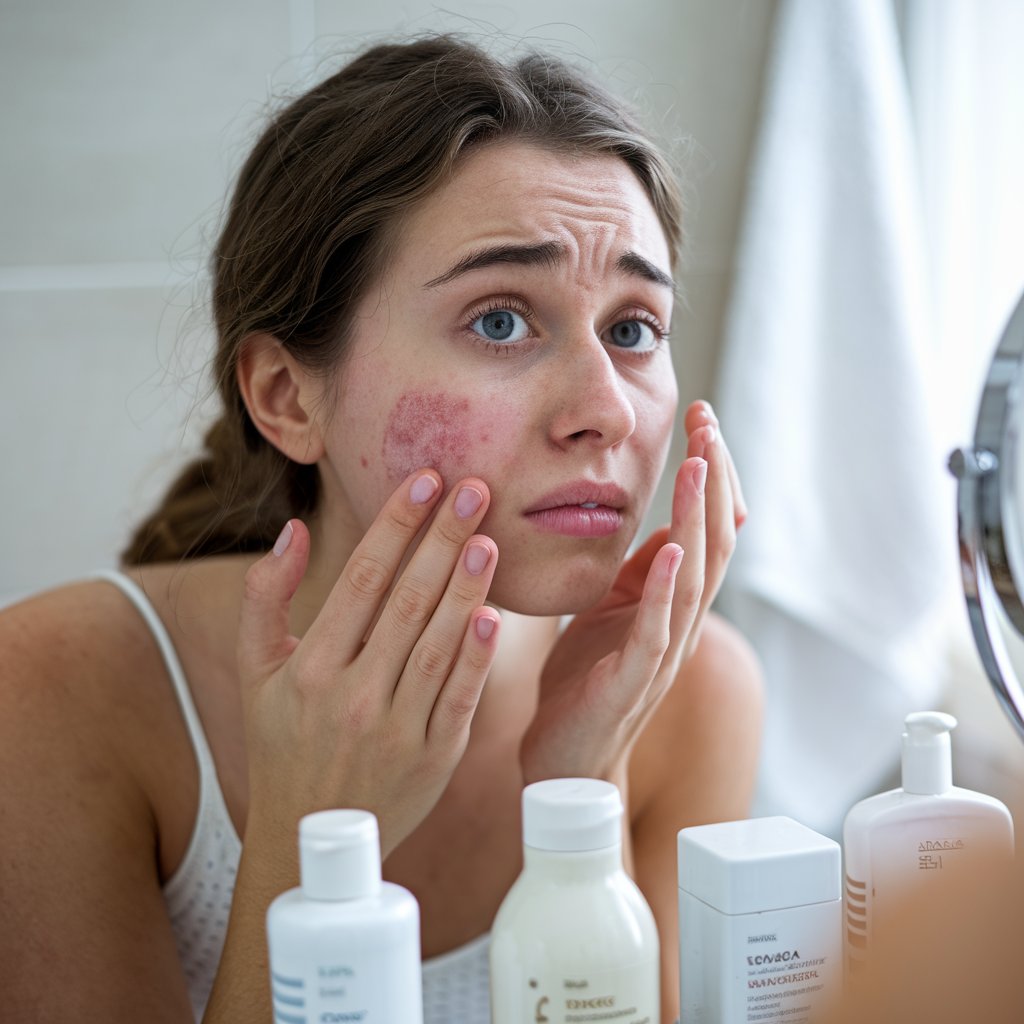Introduction
Investing time and money into a skincare routine should yield noticeable improvements in your skin’s health and appearance. However, many people find themselves asking, “Why isn’t my skincare working?” If you’ve been diligently following your routine but aren’t seeing results, it’s time to dig deeper into the possible reasons behind this frustrating experience. In this article, we’ll explore the common pitfalls and mistakes that might be preventing your skincare from delivering the glowing, clear skin you desire.
Common Reasons Your Skincare Isn’t Working
1. Using the Wrong Products for Your Skin Type
One of the most fundamental aspects of skincare is selecting products tailored to your specific skin type. Using products that aren’t suited for your skin can lead to a range of issues. For instance, if you have oily skin and are using a rich, creamy moisturizer designed for dry skin, you may find that your pores become clogged, leading to breakouts. Conversely, those with dry skin might struggle with flaky patches if they use a cleanser meant for oily skin.
- How to Identify Your Skin Type:
- Oily Skin: Prone to shine, especially in the T-zone (forehead, nose, and chin).
- Dry Skin: Often feels tight, with visible dry patches or flakiness.
- Combination Skin: Oily in some areas (like the T-zone) but dry in others.
- Sensitive Skin: Easily irritated, prone to redness and reactions.
Tip: Consult with a dermatologist or take an online skin type quiz to better understand your skin’s needs.
2. Not Giving Products Enough Time
Skincare isn’t a quick fix; it requires patience. Many people expect to see immediate results and abandon a product prematurely when changes aren’t noticeable right away. It’s important to understand that most skincare products, especially those targeting specific concerns like acne or hyperpigmentation, can take several weeks or even months to show visible improvements.
- General Timelines for Skincare Results:
- Acne Treatments: 4-6 weeks.
- Anti-Aging Products: 2-3 months.
- Hyperpigmentation Treatments: 1-2 months.
- Moisturizers: Immediate to 1 week.
Tip: Stick with a new product for at least 6-8 weeks before deciding whether it’s effective.
3. Layering Products Incorrectly
The order in which you apply your skincare products matters. Applying products in the wrong sequence can hinder their absorption and effectiveness. As a rule of thumb, start with the thinnest, most water-based products and work your way up to thicker, oil-based products.
- Correct Order of Application:
- Step 1: Cleanser
- Step 2: Toner
- Step 3: Serum (water-based)
- Step 4: Moisturizer
- Step 5: Sunscreen (morning routine) or Face Oil (night routine)
Tip: Allow each layer to absorb fully before applying the next one, usually about 30 seconds to 1 minute.
4. Overusing or Underusing Products
Skincare requires balance. Overusing products, especially those with active ingredients like acids or retinoids, can lead to irritation, redness, and even worsen skin conditions. On the other hand, underusing products (e.g., applying too little or too infrequently) won’t provide the desired results.
- How to Find the Right Balance:
- Follow the instructions provided with each product.
- Start with a smaller amount and increase if necessary.
- Be consistent but don’t over-apply, particularly with exfoliants and active treatments.
Tip: Less is often more in skincare. Apply just enough to cover the area lightly without overloading your skin.
Additional Factors to Consider
1. Ignoring Lifestyle Factors
Your skincare routine is only one piece of the puzzle. Lifestyle factors like diet, hydration, sleep, and stress levels also significantly impact your skin. For example, a diet high in sugar and processed foods can contribute to breakouts and dullness, while dehydration can lead to dry, flaky skin.
- Healthy Skin Habits:
- Diet: Focus on a balanced diet rich in fruits, vegetables, and healthy fats.
- Hydration: Drink at least 8 glasses of water daily.
- Sleep: Aim for 7-9 hours of quality sleep each night.
- Stress Management: Practice mindfulness, meditation, or exercise to reduce stress.
Tip: Incorporate these healthy habits into your lifestyle to support your skincare efforts.
2. Environmental Factors
Environmental factors like pollution, sun exposure, and climate changes can also affect your skin’s health and how your skincare products perform. For instance, pollution can clog pores and lead to breakouts, while sun exposure can cause premature aging.
- Protect Your Skin:
- Sunscreen: Always use a broad-spectrum SPF 30 or higher.
- Antioxidants: Incorporate products with antioxidants like Vitamin C to combat environmental damage.
- Pollution Protection: Consider products specifically designed to protect against pollutants.
Tip: Adjust your skincare routine based on the season and your environment.
Conclusion
If you’ve been wondering, “Why isn’t my skincare working?”, it’s crucial to examine your routine closely. By ensuring you’re using the right products for your skin type, applying them correctly, and considering external factors, you can improve your skincare results and achieve the glowing, healthy skin you desire. Remember, consistency and patience are key—give your products time to work and make adjustments as needed.
FAQs
1. How long should I wait before switching to a new skincare product?
- Generally, it’s best to give a new product at least 6-8 weeks to show results before deciding whether it’s effective.
2. Can I mix different skincare brands?
- Yes, but ensure the products are compatible and won’t cause irritation or cancel each other out.
3. How can I tell if a product isn’t working?
- If after 8 weeks you see no improvement or notice worsening of your skin condition, it may be time to switch products.

